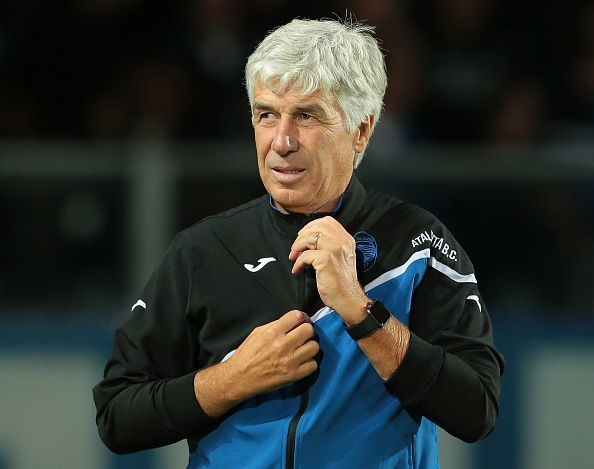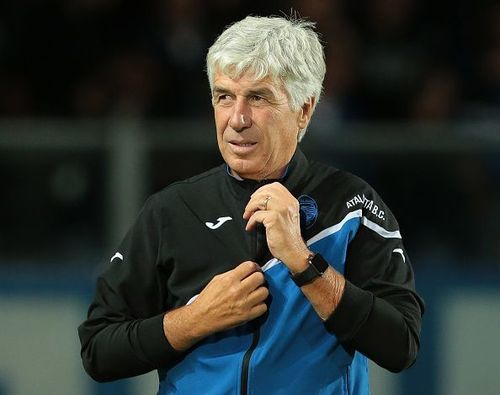
Gian Piero Gasperini: A Beacon of Hope in a League Obsessed with Mercenaries.

On the first day of September 2018, Atalanta Bergasmaca Calcio announced that it had extended Gian Piero Gasperini’s contract until 2021, with the option of a further year. The announcement made by club CEO Luca Percassi culminated in the manager’s 100th competitive game as Atalanta boss and remains a testament to the bloody marvellous job Gasperini has done since taking over in 2016.
As competitive as the English top division is, you have the likes of Tottenham, Liverpool, Everton and Burnley bridging the gap between academy and senior football; Through this practice, the likes of Harry Kane, Dele Alli, Kieran Trippier, Jordan Pickford, Trent-Alexandre Arnold, Dominic Calvert-Lewin, Danny Rose etcetera evolved into world-class footballers.
While Gareth Southgate and a number of Premier League clubs should be commended for retracing their steps and giving the young a chance, Italy haven strayed, and unsurprisingly now a shadow of its past glory, have become the latest example of what happens when the youth are left to wander without direction.
There is, however, a light in Bergamo; maybe not be much light, but it is bright enough to send a revolutionary message from the province of Lombardy, across every footballing city on the Peninsula.
North-east of Milano, the revolution has begun; A certain Gian Piero Gasperini is bringing back the Italian football you thought was lost. The Atalanta B.C. head coach leads a small but unique group of Serie A managers giving more first-team opportunities to Italian under-23s than the other seventeen coaches in the division.
The idealistic Gasperini spent much of his playing days in the Serie B; running around the middle of the park for Pescara, an Italian club world famous for its success with the likes of Lorenzo Insigne, Marco Veratti and Ciro Immobile in the early 2010s. As such, it’s hardly surprising that the 60-year-old has evolved into a manager practicing the very ideals that enhanced his development as a player back in the day.
In 2017/18, after a very impressive season the previous year, Gasperini guided Atalanta through a memorable run in the UEFA Europa League, but one of the defining features of that campaign remains the fact that 38% of the Nerazzurri’s squad comprised of academy graduates from the prestigious Zingonia Academy; Atalanta's Centro Sportivo Bortolotti facility leading the way in Italian youth football development.
In the last five years of Italian football, the principal of Bergamo has handed out over 340 first-team starting roles to about 18 under-23 Italian footballers, helping the likes of Mattia Caldara, Andrea Conti, Roberto Gagliardini, Andrea Petagna, Leonardo Spinazzola, and Bryan Cristante cut their playing teeth, just like he had done with the legendary Thiago Motta and Leonardo Bonucci in the late 2000s as Genoa manager.
The 60-year-old is not your typical triple-A rated silverware winning Calcio tactician, but what he’s achieved with such shoestring budget sides as Crotone, Genoa, and Atalanta - maximizing potential in undervalued talent via an enthusiastic high-pressing brand of football powered by youthful exuberance- leaves him in a dignified class of his own; sadly as an underappreciated mastermind.
Currently, only three Serie A managers –AS Roma boss Eusebio Di Francesco, Fiorentina’s Stefano Pioli and Juve’s Massimiliano Allegri– happen to be practicing Gasperini’s gospel of gioventù (youth), albeit at a slower pace.
While Fiorentina boast the youngest squad across Europe’s top five leagues with an average age of 23 –and Pioli’s obsession with youth is beautifully expressed in the 114 first-team starts he’s handed out to over six Italian youngsters– it is AS Roma boss Eusebio Di Francesco that comes closest to Gasperini’s impressive strides, with over 240 match-starting appearances for fourteen U23 Italians.
Given Il Rossoneri's and Il Bianconeri’s habit of recruiting established World class mercenaries, Massimiliano Allegri understandably comes in at fourth, with over sixty starts for twelve homegrown youngsters at Milan and currently Juventus.
Atalanta have had some of its finest years under Gian Piero Gasperini’s leadership, but the manager’s appetite and philosophy for integration of homegrown talent, complemented by the club’s remarkable youth system, is what brings hope to a Nation that –through obsession with results and preference of finished products –has become cancer in its own body.
Sarrismo is popular for and synonymous with, Maurizio Sarri’s fast-paced, exciting brand of football, and has unsurprisingly seduced its way into the hallowed pages of Italian encyclopedia. Perhaps, it wouldn’t be out of place if Gasperinismo was considered? given Gasperini’s significant input in reducing the margin between upcoming generation and the established order? We leave it to mother nature.
Haven guided the likes of Crotone and Genoa to promotion in the last decade, Gasperini’s status and managerial portfolio has outgrown his achievements in Calabria and Liguria and now bothers on developing undervalued talent, and saving Atalanta bucket loads of cash through shrewd transfer dealings.
For many, the 60-year-old is just another gaffer-in-suit taking his chances with a middle-class club on a small budget, but for those deeply concerned about the state of Azzurri, Gian Piero Gasperini isn't just "the mastermind who's turned Atalanta into a bastion of young talent and attacking prowess" he is the underappreciated idealist fashioning the framework for the renaissance of Italian football.